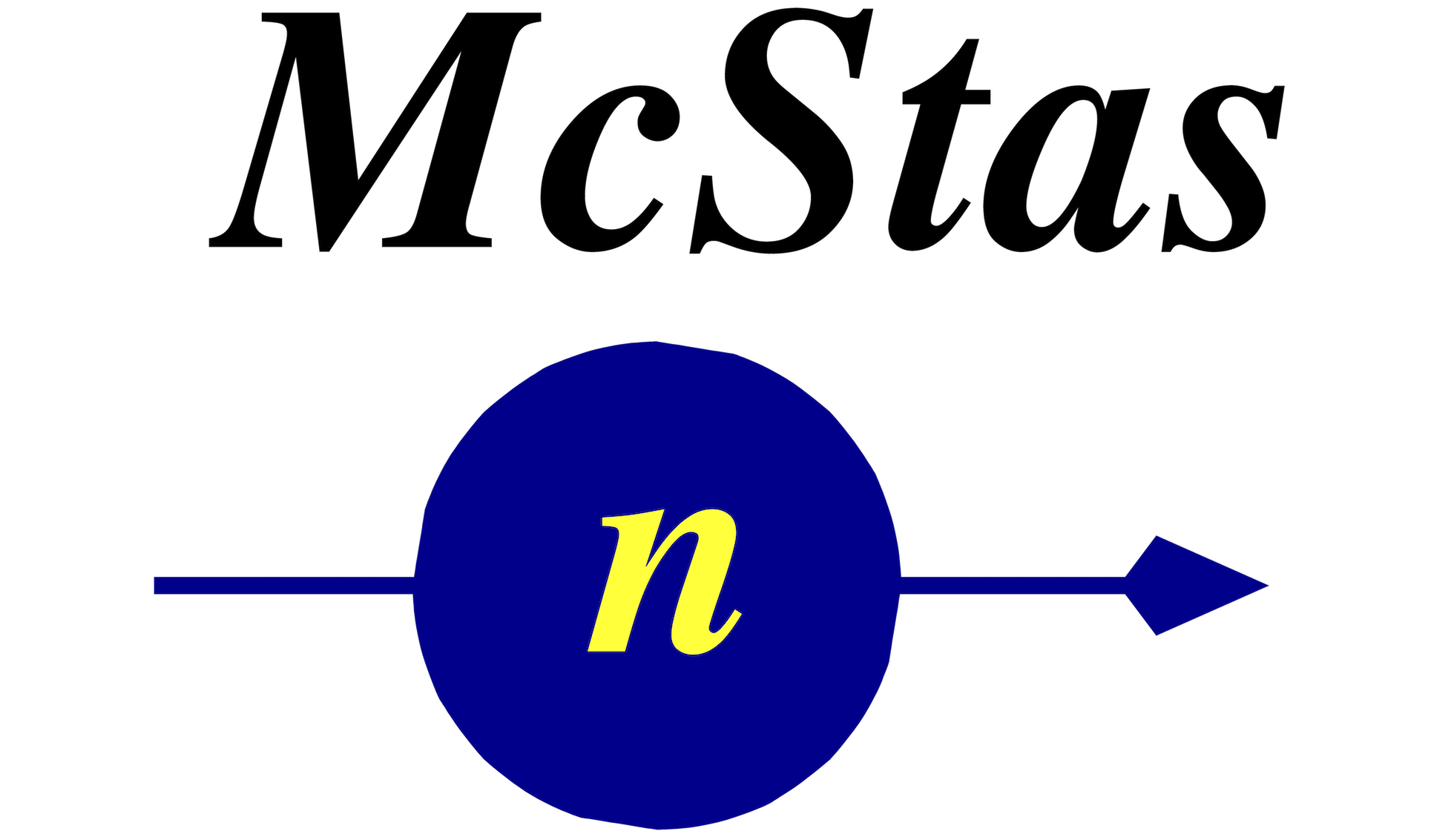






About McStas
Conditions of use
Authors/Contacts
Project funding
Download
Components
Other Downloads (share)
Documentation
Wiki (GitHub)
McStas manual
Publications
[ Identification | Description | Input parameters | Links ]
The ILL_H143_LADI Instrument
The LADI protein crystallography cold Laue diffractometer
Identification
- Site: ILL
- Author: Emmanuel Farhi
- Origin: ILL (France)
- Date: Sept 2014.
Description
LADI-III is a quasi-Laue neutron diffractometer used for single-crystal studies of biological macromolecules at high resolution (1.5 - 2.5Å) in order to locate individual protons or deuterons of special interest, water structures or other small molecules that can be marked with deuterium to be particularly visible. Data collection is feasible for samples with unit-cell edges ranging from 50 to 150Å using crystal volumes from ~0.05 to 0.5mm3, respectively. LADI-III uses a large cylindrical area detector composed of neutron-sensitive image-plates, which completely surround the crystal and allows large numbers of reflections to be recorded simultaneously. Data are collected using a quasi-Laue method in order to provide a rapid survey of reciprocal space, while reducing the background on the detector compared to use of the full white beam. LADI: Guide H143: H14_1 H14_2 H14_3 [OT1] H143_1 [OT2] H143_2 last Length [m] 6.8 6 21 30 35 1 m 2 2 2 1,bot=1.4 1,bot=1.4 idem Rh [km] - 2.7 4.0 - - - Rv [km] - - - 2.0 2.0 2.0 n_elm. 2 5 11 15 14 last=1m section [mm] 45x220 45x220 45x220-200 45x30+95 30x30+95 [w*h+v.offset] Filter: Ni/Ti multilayer band-pass filter, Quasi-Laue (dlambda/lambda<30%) Collimation: Pinholes 0.5 to 2.9 mm Detector: image plate 1250 x 450 mm2 Sample: at 2.710 mm from the end of the guide H143.
Input parameters
Parameters in boldface are required; the others are optional.| Name | Unit | Description | Default |
| lambda | Angs | wavelength | 3.2 |
| dlambda | Angs | wavelength HALF spread. | 1 |
| reflections | str | list of reflections describing the sample SX | "leucine.lau" |
Links
- Source code for
ILL_H143_LADI.instr.
[ Identification | Description | Input parameters | Links ]
Generated on 2023-09-19 20:01:36